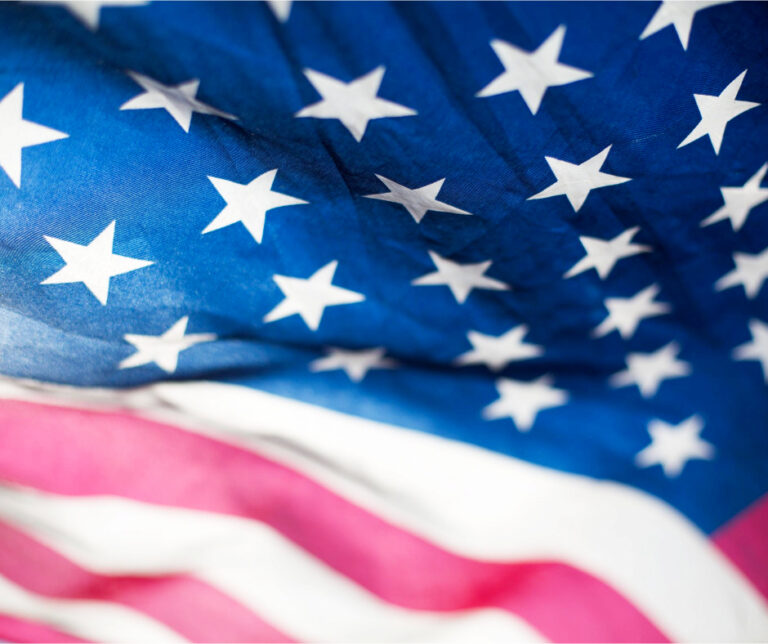VA Loan Requirements For 2023
This is a complete guide to VA loan requirements on VA mortgage loans. We will cover everything you need to know. about qualifying and getting approved for VA loans. We will compare the agency mortgage guidelines of the VA versus the lender overlays of the mortgage company. Lenders need to meet the minimum agency lending requirements of the Veterans Administration (VA).
About The Department of Veterans Affairs
The U.S. Department of Veterans Affairs also referred to as the VA, is the giant federal agency in charge of the administration of VA loans in the United States. The VA oversees the VA loan guarantee system between veterans with entitlements to VA loans and mortgage companies.
The Veterans Administration has very lenient mortgage guidelines for its active duty and retired members of the U.S. Military. For example, the VA does not have a minimum credit score requirement on VA loans. The Veterans Administration does not have a maximum debt-to-income ratio cap on VA loans. However, each individual mortgage lender can have their own separate VA loan requirements above and beyond the minimum VA loan requirements of the Veterans Administration.
What Are Lender Overlays on VA Loans?
Mortgage lenders can have higher VA loan requirements on VA loans for their own financial institutions that surpass the VA agency guidelines. Not all lenders have the same VA loan requirements. One lender may have higher lending requirements than a different lender on VA loans. Just because you do not qualify for a VA loan from one lender does not mean you do not qualify at a different lender with no lender overlays. In the following paragraphs, we will cover the VA loan requirements and guidelines on VA loans for 2023.
What Is A VA Mortgage?
The US government created the VA home loan program in 1944 when the Servicemen’s Readjustment Act added a package of benefits to eligible service members. VA mortgage lenders offer a variety of home loans designed to meet many needs, including:
- Build a single-family home.
- Buy a single-family home, a condominium unit in a VA-approved development, or a co-op unit.
- Repair, renovate, or upgrade your primary residence.
- Refinance a mortgage.
- Buy a manufactured home and/or lot.
- Make energy-efficient improvements like solar heating or cooling systems.
What Is The Role of The Veterans Administration on VA Home Loans?
The VA does not loan money. The Veterans Administration is a giant federal agency in charge of administering VA loans. Private lenders originate and fund VA loans. The Veterans Administration guarantees VA loans to private lenders who follow the minimum VA agency mortgage guidelines in the event the borrower defaults and forecloses on their VA loan.
How Does The Veterans Administration Insure VA Home Loans?
The government guarantee on VA loans makes them safer for lenders and keeps mortgage rates down.
A VA loan is a top benefit of military service for eligible veterans, service members, and qualifying surviving spouses. It allows you to qualify for a low-cost mortgage when you’re looking to purchase or refinance, even if your credit isn’t perfect. Veteran status requires that service members are discharged or released from the military under conditions other than dishonorable. A veteran with a dishonorable discharge will not be eligible to participate in the VA Loan Guaranty program.
Is a VA Mortgage Right for You?
VA mortgages offer advantages like no other program. Here are ten reasons to finance with a VA home loan. There is no down payment requirement. The VA allows cash-out refinancing up to 100% of the property value.
A VA loan is a $0-down mortgage option issued by private lenders and partially backed, or guaranteed, by the Department of Veterans Affairs (VA). Eligible borrowers can use a VA loan to purchase a property as their primary residence or refinance an existing mortgage.
VA Credit Score Requirements on VA Home Loans
The VA imposes no minimum credit score requirements with an approve/eligible per automated underwriting system approval or manual underwriting. VA and FHA loans are the only two mortgage loan programs that allow manual underwriting. Dale Elenteny is one of the top producing loan officers of VA loans nationwide at Mortgage Lenders For Bad Credit, Inc. Dale explains the credit score VA loan requirements as follows:
Most mortgage companies have lender overlays on VA loans. For example, VA loans do not require a minimum credit score requirement. However, most lenders have a minimum credit score (overlays) requirement on VA loans. The VA doesn’t have a minimum credit score requirement. Instead, lenders can set their own requirements. At Mortgage Lenders For Bad Creidt, Inc., we have no lender overlays on VA home loans. We just go off the minimum agency VA guidelines. The team at Mortgage Lenders for Bad Credit, Inc, we have helped thousands of homebuyer qualify, approved, and closed on VA loans with credit scores down to 500 FICO.
Buying A House With VA Loans
Mortgage Lenders For Bad Credit, Inc. does not apply overlays. VA mortgages are fully assumable by any qualified person (the buyer does not have to be a veteran). The VA or the lender must give prior approval. A VA loan is a $0-down mortgage option issued by private lenders and partially backed, or guaranteed, by the Department of Veterans Affairs (VA). Eligible borrowers can use a VA loan to purchase a property as their primary residence or refinance an existing mortgage.
A VA loan is a $0-down mortgage option issued by private lenders and partially backed, or guaranteed, by the Department of Veterans Affairs (VA). Eligible borrowers can use a VA loan to purchase a property as their primary residence or refinance an existing mortgage.
There are NO monthly mortgage insurance premiums or mortgage insurance underwriting requirements. There is no maximum loan limit on VA loans.
VA Funding Fee on VA Home Loans
Borrowers can add VA funding fees to their loan balances, reducing out-of-pocket costs. Refinancing is easy because VA loans have no prepayment penalty. Fixed and adjustable-rate mortgages are available. Sellers can assist with standard closing costs of up to four percent. Energy-efficient improvements can be added to 100% financing with any VA home loan product.
In addition, VA mortgage rates are often lower than any other program because borrowers tend to default less often and because the government backs the loans.
Who Is Eligible for VA Home Loans?
In general, you must be on active duty or have been honorably discharged from a branch of the military. The VA probably has your records filed electronically and can provide your Certificate of Eligibility (COE) almost instantly.
Click here to get your certificate from the VA
If the VA can’t provide your certificate online, you’ll need your DD-214 form proving that you’ve been honorably discharged. Then, you can have your lender get your certificate or file VA Form 26-1880 yourself.
Service Requirements To Be Eligible For VA Certificate of Eligibility
Here are the service requirements for VA home loan eligibility:
- 181 days of service during peacetime (Active Duty)
- 90 days of service during wartime (Active Duty)
- 6 years of service in the Reserves or National Guard
- Your spouse was a service member who was killed in the line of duty
There are other instances in which you may be eligible – the rules depend on when you served. Click here for more details.
Re-Using Your VA Eligibility
You can re-use your eligibility for VA financing. Ordinarily, you’d sell your home, pay off your loan, and restore your eligibility. However, you can’t have more than one VA loan at a time. Many first-time homebuyers of VA loans, often think VA loans are difficult to close. VA loans is no more difficult to close than any other traditional or non-traditional mortgage loan.
Closing rates on a VA loan are comparable to other loan types with a closing rate of 74.3%, compared to 74.1% of all mortgages. Conventional loans have a 75.2% closure rate. Selecting a VA-approved lender with in-house streamlined underwriting services will expedite the process.
If you pay off your VA mortgage but still own the property, you can restore your eligibility and get another VA mortgage, However, you can only do this one time.
How To Restore VA Certificate of Eligibility
To restore your eligibility, you send a completed VA Form 26-1880 to the Atlanta Eligibility Center. Include evidence that you repaid the prior loan in full and, if applicable, that you sold the property. This evidence can be in the form of a paid-in-full statement from the former lender, or a copy of the HUD-1 settlement statement completed in connection with a sale of the property or refinance of the prior loan.
VA Loan Requirements on Mortgage Assumption
If you let someone assume your VA loan, you can restore your eligibility only if the qualified assumer is also an eligible veteran who is willing to substitute his or her available eligibility for yours. Otherwise, you cannot restore eligibility until your buyer pays off the VA loan.
One of the benefits about VA home loans, is that VA loans are assumable. For all VA Loans committed on or after March 1, 1988, you may sell your home to someone who agrees to assume your loan if the loan holder or VA approves the creditworthiness of the purchaser(s).
VA Loan Requirements on Partial Eligibility
If you used only a portion of your eligibility, any partial remaining eligibility would be available for use.
In fact, VA lenders can count disability income as effective income toward a mortgage, and borrowers with a service-connected disability are exempt from paying the VA Funding Fee, a mandatory cost the VA applies to every purchase and refinance loan to help cover losses and ensure the program’s continued success.
VA Loan Requirements on Getting Approved After Divorce
Can I Assume VA Loan After Divorce?
Michael Gracz, a senior mortgage loan officer and associate contributing editor at Mortgage Lenders For Bad Credit, Inc. is a VA home loan expert and a leading speaker of VA agency mortgage guidelines. Mike Gracz said the following:
According to the Veterans Administration, there are mortgage options for the thentitlement holder of the VA loan and spouses when they are divorcing. The veteran entitlement holder borrower can petition the Veterans Administration for the non Veteran civilian ex-spouse the right to assume the VA loan when the estranged spouse was on the VA loan as a co-borrowers with the veteran prior to the divorce.
What Happens To VA Loan Benefits In a Divorce?
- The easiest way to remove someone from a VA mortgage is to refinance the loan in the remaining borrower’s name alone. A VA Interest Rate Reduction Refinance Loan (VA IRRRL) is a simple way to achieve this. If you are a veteran, the good news is that your estranged spouse is not entitled to a percentage of your VA benefits in the property division. But if you are required to pay alimony or child support, those benefits may be considered part of your income in the child support or alimony calculation.
When a property is awarded to the veteran’s spouse as a result of divorce, entitlement cannot be restored unless the spouse refinances the property and/or pays the VA loan in full or the ex-spouse is a veteran who substitutes his or her entitlement.
VA Loans for Manufactured Homes

You may use a VA-guaranteed loan to:
- Buy a manufactured home and/or lot;
- The manufactured home needs to be permanently fixed to a concrete foundation
- Refinance your VA manufactured home loan to reduce the interest rate (IRRRL).
VA Loan Requirements on Maximum Guarantee on Manufactured Homes
For manufactured home financing, the maximum VA guarantee is $20,000. Because most lenders limit VA loans to four times the guarantee amount, many lenders max out their loan amount at $80,000. The maximum loan amount for a manufactured home purchase is 95% of the purchase price of the property securing the loan, plus the VA funding fee. And you won’t get 30 years to repay your loan. The maximum terms for manufactured home loans are:
- 20 years and 32 days for a single-wide unit or a combination single-wide unit and lot;
- 23 years and 32 days for a double-wide unit only
- 25 years and 32 days for a double-wide unit and lot.
VA Loan Requirements on Manufactured Homes
To be eligible for a VA home loan, the manufactured home must be on a permanent foundation and classified as real estate. That means you pay property tax to your county assessor, not a vehicle tax to the DMV. It must be livable year-round with permanent eating, cooking, sleeping, and sanitary facilities. The Veterans Administration will finance manufactured homes,
Can the Veterans Administration finance manufacture homes is a commonly frequently asked question. short answer is yes. Financing manufactured homes (also sometimes called modular or mobile homes) is in fact allowed under VA mortgage guidelines. These are known colloquially as mobile home loans.
Homebuyers who are planning on purchasing a single-wide manufactured home needs to make sure the width of the home is 10 feet wide and cannot be smaller than 400 square feet. The VA guidelines on double-wide units must be at least 20 feet wide with at least 700 square feet of floor space. Your manufactured home must be sited on a lot that you own.VA requires that you own your land and not lease it.
VA Loan Requirements on Condominium Purchases
Eligible borrowers may use VA home loans to purchase VA-approved condominiums. Before making an offer on a condo, verify through the Veterans Information Portal (VIP) that it’s on the VA-approved list. If you don’t see the project you want on the VA list, check with HUD to see if on HUD’s list of FHA-approved condominiums. The VA is generally willing to allow projects on FHA’s approved list. If you don’t find your project on either the VA or FHA list, ask your VA-approved lender to submit the necessary paperwork to the VA for project approval.
VA Condo Guidelines on VA Loans
Condos approved by HUD (and/or the VA) must meet these guidelines. The whole project must be complete, including all common areas and facilities. The HOA must have been in control of the common areas for at least one year. The project must have appropriate hazard, liability, and flood insurance (if applicable). Projects with 20 or more units require fidelity insurance or a bond. Individual ownership must be fee simple with undivided ownership of common areas. There must be no legal restrictions on the transferability of the title.
VA Loan Requirements on New Construction Condominiums
The builder must have sold at least 50% of all units. More than half of the units must be owner-occupied. No single entity may own more than 10% of the units in a project. No more than 30% of the units may be FHA-financed. For mixed-use projects, the maximum commercial area is 25% of the square footage.
VA Loan Requirements on Condo Homeowners Association
The budget must be adequate. The association must have reserves of at least 10% of the budget. Condominium hotels or “condotels”, timeshares, houseboat projects, and multi-dwelling unit condominiums are ineligible. If your condo project complies with these guidelines, the VA will probably approve it. However, the process takes time.
Everything You Need To Know in Applying For VA Loans
Qualifying for a VA mortgage is different. Instead of looking at your credit score, income, debts, and bank accounts, VA underwriting guidelines mention no minimum credit score, do not require down payments, and calculate “residual income” instead of debt-to-income ratios. Is your head spinning yet? It’s not as hard to understand as it seems. VA lenders look at several factors when underwriting your loan application.
- Income
- Assets
- Debts
- Credit
They look at these things differently than other kinds of lenders do.
VA Loan Requirements on Qualified Income
The VA tells its lenders in its underwriting guide that VA loans involve a veteran’s benefit and to underwrite accordingly. For most applicants, “residual income” is a more generous standard than debt-to-income ratios.
You need to supply pay stubs covering your last 30 days of employment, W-2 forms covering your last two years of employment, and a written or telephoned verification of employment (VOE).
VA Loan Requirements on Child Support And Alimony
You can use child support alimony, or separate maintenance to qualify for your loan if you can prove that you’re entitled to it and that you receive it regularly.
In community property states, the lender may request your spouse’s income information even if he or she isn’t purchasing the home with you or is obligated on the loan.
VA Loan Requirements on Second Job Income
Income from a second job won’t help you qualify unless you have at least 24 months experience of working two jobs. Lenders only count second jobs or seasonal income if you’ve received it for a minimum of two years UNLESS you’ve got at least a 12-month history and your employer indicates a high probability of continued employment on the VOE form.
If you have less than 12 months, underwriters also look at your training and/or education and skills that relate to your current position. Examples include training in nursing or medicine, law, or information technology. The VA says, “If the probability of continued employment is high based on these factors, then the lender may give favorable consideration to including the income in total effective income.”
VA Loan Requirements on Overtime, Bonus, and Part-Time Earnings
You can use overtime, bonus, and part-time earnings (if you have at least one year of history) to offset intermediate-term debts with less than 24 months remaining. For example, if you have 15 months left on a car loan and your payment is $300, and you’ve been earning $200 a month in overtime for at least a year, lenders only count $100 of your car payment in your debts. Seasonal income may be used under special circumstances. It is important to document the past history and the likelihood it will continue.
What Are The VA Loan Requirements on Temporary Income?
Lenders consider income from Worker’s Compensation, foster care, public assistance, Social Security, alimony, and child support if consistently paid and likely to continue. Public assistance programs and Social Security must continue for a minimum of three years from the date of closing. Temporary income such as VA educational allowances and unemployment compensation do not represent stable and reliable income and won’t count.
VA Loan Requirements on Self-employed Applicants
Generally, income from self-employment may be used when the applicant has been self-employed for at least 2 years. Here’s what you’ll need to provide:
- Copies of the last two years’ business and/or individual tax returns.
- The current year-to-date profit & loss statement and balance.
- For partnerships and corporations, furnish a list of the primary owners and their percentage in the business.
- Taxable Income listed on the bottom of a corporate tax return (IRS Form 1120) may be divided by the veteran’s percentage of ownership and then used as additional income (subject to tax).
How Do Mortgage Underwriters Calculate Income on VA Loans?
How is your self-employment income calculated? In general, you’ll take your taxable income and add back non-cash deductions like depreciation as well as extraordinary expenses that won’t recur. You’ll subtract windfall income that won’t recur. The two years income is then averaged if your income increased from year one to year two.
If it decreased, though, you get the lower year’s income – maybe even less if your industry or economy is shaky. Normal business expenses that can be added back to the net profit or bottom-line figures include depreciation, business interest, and amortization of organizational fees (corporations).
VA Loan Requirements on Commissions and Bonuses
When at least “a major portion” of your income is from commissions, you have to have received it for at least two years for it to count. The VA does not define “major portion.” You’ll need your employer to indicate your year-to-date commissions, the basis for computing commissions, and how frequently commissions are paid.
- Provide your last two years’ income tax returns with W-2s and 1099-MISC Forms.
- If your income is increasing, you get the average of the last two years’ income.
- If decreasing, you get a lower year’s income – or less, if your industry or local economy is faltering.
VA Loan Requirements on Military Income
Provide your Leave and Earnings Statement (LES). If your release date is within 12 months, you’ll need:
- Evidence that you have already re-enlisted or extended your period of active duty to a date 12 months beyond the date of loan closing
- OR proof of a valid offer of local civilian employment
- OR a statement that you intend to reenlist or extend active duty beyond the 12-month period PLUS a statement from your commanding officer confirming that you’re eligible to reenlist or extend active duty.
Assets, Down Payment, Closing Costs on VA Loans

The VA doesn’t require you to have reserves, which are funds you could use to pay your mortgage and other obligations if you had an interruption or reduction in your income. However, lenders consider your liquid assets for unplanned expenses in the overall credit analysis. You don’t need a down payment unless your sales price exceeds the property value or the maximum loan amount the lender is willing to make (remember, the VA does not limit the loan amount).
VA Seller Concession and Lender Credit Guidelines
You may not have to pay closing costs, either — your lender can cover your closing costs if you choose a loan with a higher interest rate. The home’s seller can contribute up to four percent of the appraised value for closing costs. Your lender will verify that you have enough money to pay your closing costs, as well as any assets that affect its underwriting decision. Your lender can send a Verification of Deposit (VOD) form to every depository institution you use, or you can provide copies of statements (certified by the bank). Online verification by your lender is also an option – just provide the URL.
VA Loan Requirements on Debt To Income Ratios
Your credit report will probably list all or most of your debts. You’ll need to document unlisted debts like child support or alimony. Lenders deduct significant debts from your effective income. These have a remaining term of at least ten months, or less than ten months but “very large” payments. In addition (and VA is the only loan program that requires this), childcare expenses count as debt payments. After deducting debt payments (including the proposed housing payment) from income, there must be enough money left (called “residual income”) for you to qualify for your loan.
VA Guidelines on the Community Property States
In community property states, your spouse’s debts count against you, even if he or she is not going to purchase the property with you. If divorced, debts assigned to your spouse won’t count as yours. If you’ve co-signed for a loan, the debt won’t count as yours as long as you can show that the borrower is making the payments. Once the lender deducts the required amounts from your income, the rest is “residual income.” You’ll need at least the amounts listed below to qualify for a loan.
| Table of Residual Incomes by Region
For loan amounts of $80,000 and above |
||||
| Family Size | Northeast | Midwest | South | West |
| 1 | $450 | $441 | $441 | $491 |
| 2 | $755 | $738 | $738 | $823 |
| 3 | $909 | $889 | $889 | $990 |
| 4 | $1,025 | $1,003 | $1,003 | $1,117 |
| 5 | $1062 | $1,039 | $1,039 | $1,158 |
| over 5 | Add $80 for each additional member up to a family of seven | |||
Credit Requirements and Guidelines on VA Home Loans
The VA does not impose minimum credit score requirements on borrowers. Lenders should carefully review the complete credit history and use their judgment. For example, if you have numerous unpaid collections, the lender will question your ability to manage debt. If you have derogatory credit entries and the lender approves your loan, it must include an explanation in your file.
What Are VA Lender Overlays?
If lenders are unsure about a particular situation, they should contact the appropriate VA Regional Loan Center. However, many lenders, if not the majority, prefer adding their own minimum credit score requirements to making judgment calls. Minimum scores of 620 – 660 are not uncommon.
The average FICO score for those approved for VA mortgages is 708. If your credit score is an issue, ask the lenders that you contact if they have minimum credit scores, and avoid those with requirements you can’t meet. The VA is fairly flexible in its treatment of other credit issues, but individual lenders may differ.
Credit Counseling Requirements on VA Loans
Some lenders treat credit counseling the same way they would a Chapter 13 bankruptcy; others view it as a proactive problem solution and a positive thing. The VA is in the latter camp, saying, “If a veteran, or veteran and spouse, have prior adverse credit and are participating in a Consumer Credit Counseling plan, they may be determined to be a satisfactory credit risk if they demonstrate 12 months’ satisfactory payments and the counseling agency approves the new credit.”
If a veteran, or veteran and spouse, have good prior credit and are participating in a Consumer Credit Counseling plan, such participation is to be considered a neutral factor, or even a positive factor, in determining creditworthiness. Do not treat this as a negative credit item if the veteran entered the Consumer Credit Counseling plan before reaching the point of having bad credit.
VA Loans After Bankruptcy
The VA is pretty generous in its interpretation of a bankruptcy filing on an applicant’s default risk. “The fact that a bankruptcy exists in an applicant’s (or spouse’s) credit history does not in itself disqualify the loan.”
You may be eligible for a VA loan once you’re 12 months removed from filing for Chapter 13 bankruptcy protection. A prospective borrower may receive approval for a VA home loan while still making payments on their Chapter 13 bankruptcy if they have made their payments on time for at least one year. If your Chapter 7 bankruptcy was discharged more than 1 but less than 2 years ago, you may still be eligible. You will need to have established a credit history after the bankruptcy and demonstrate the bankruptcy was caused by circumstances beyond your control to qualify.
Underwriters are instructed to disregard Chapter 7 bankruptcies over two years old.
Re-Establishing Credit After Bankruptcy
Those with bankruptcies discharged at least a year ago may also qualify for financing if they have taken out new credit and made their payments on time, and, “the bankruptcy was caused by circumstances beyond the control of the applicant or spouse such as unemployment, prolonged strikes, medical bills not covered by insurance, and so on, and the circumstances are verified.”
By continuing to pay all of your bills on time, and properly establishing new credit, you can often attain a 700 credit score after bankruptcy within about 12 to 18 months after your case is filed and you receive a discharge.
Chapter 13 bankruptcies are treated more leniently still. Once discharged, they are disregarded. In fact, if you have “satisfactorily made at least 12 months of the payments and the Trustee or the Bankruptcy Judge approves of the new credit, the lender may give favorable consideration.”
VA Loan Requirements After Foreclosure
The VA says that foreclosure does not necessarily make you ineligible for financing. Lenders are directed to apply the same guidelines they would for bankruptcy – reestablished credit, cause of foreclosure, etc. – when determining if your credit qualifies for mortgage approval. You may have to contact a number of VA-approved lenders before you find one that adheres to VA guidelines without imposing stricter overlays.
VA Loan Requirements on CAIVRS
The one non-negotiable credit issue for VA and other government mortgages is the CAIVRS check. The Credit Alert Interactive Verification Reporting System is a database that lists people who have defaulted on federally guaranteed debts like student loans, have outstanding tax liens, or have other obligations to the federal government. Your lender has to check this database when you apply for a mortgage. If you’re on it, you won’t be allowed to close on a government-backed mortgage until you’ve either cleared up whatever reporting errors or resolved the debt – in many cases, you need to set up a payment plan.
Mortgage Underwriting Guidelines on VA Loans
(Lender’s Handbook, Chapter 4)
Acceptable Verification of Employment Guidelines on VA Loans
Verify a minimum of two years of employment (including previous jobs, if needed). Only verified income can be considered in qualifying for a VA loan. The income of a spouse who will be obligated on the loan must also be verified if needed.
VA Form 26-8497, Request for Verification Of Employment (VOE), or any format that obtains the same information.
All Verifications of Employment must be originals. Note: It is acceptable for Department of Defense civilian employees to provide computer-generated pay stubs accessed through E/MSS (Employee Member Self Service). An original or certified copy of the applicant’s pay stub, when furnished by the employer, must be provided. The employment verification should be compared with the pay stub for consistency.
Note: The VOE and pay stub must not be more than 120 days old (180 days for new construction) for loans closed on an automatic basis.
Documents Required To Process VA Home Loans
ALTERNATIVE DOCUMENTATION REQUIREMENTS
(Lender’s Handbook, Chapter 4)
Telephone verifications should be obtained and be similar in content to the employment verification form. Phone verification should show the person contacted, their position, phone number, and date contacted. Furnish the original pay stub(s) covering the most recent 30-day period together with W-2 forms for the previous 2 years. Two verification companies, VIE and TALX Corporation, have been approved for use on VA loans.
VA Guidelines on Additional Source of Income Considered Documented Income
(Lender’s Handbook, Chapter 4, Topics 2p,q,r)
Receipt of child support, alimony, or separate maintenance must be disclosed and verified to be considered when qualifying for the loan. In accordance with the Equal Credit Opportunity Act (ECOA), do not ask questions about the income of a spouse unless the spouse will be contractually liable or the applicant is relying on the spouse’s income to qualify. In community property states, information concerning a non-purchasing spouse may be requested and considered in the same manner as for the applicant, even if the spouse will not be contractually obligated on the loan. Income from Worker’s Compensation, Foster Care, Public Assistance, Social Security, Alimony, and Child Support may be considered if they have been verified as consistently paid and are likely to continue. Public assistance programs and Social Security must continue for a minimum of 3 years from the date of closing to be counted.
VA Loan Requirements on Using Income From Second Job
Generally, income from a 2nd job should only be used after the applicant has 24 months experience of working two jobs. Generally, income from overtime or part-time work is not reliable unless the applicant has a two-year history of earnings. Overtime and part-time earnings that have been received for at least 1 year can be used to offset intermediate-term debts with less than 24 months remaining. Seasonal income may be used under special circumstances. It is important to document the past history and the likelihood it will continue.
VA Guidelines on Self-Employed Borrowers
Generally, income from self-employment may be used when the applicant has been self-employed for at least 2 years. Copies of the past two years’ business or individual tax returns must be provided. The current year-to-date profit & loss statement and balance sheets are required. These exhibits can be prepared by the business or the veteran if adequate information is provided. Normal business expenses that can be “added back” to the net profit or bottom-line figures include depreciation, business interest, and amortization of organizational fees (corporations).
Can I Get a VA Loan If I Am Self-Employed?
Business debts listing the name of a Sole Proprietor on a Schedule C must be counted against the veteran on the loan analysis. The same applies to partnerships filed on IRS Form 1065. Only corporate debts are exempt from the veteran’s loan analysis. For partnerships and corporations, furnish a list of the primary owners and their percentage in the business.
This can usually be found on the K-1 Forms for partnership and subchapter S corporations, or on the 1120 Form, Schedule E for standard corporations. Taxable Income listed on the bottom of a corporate tax return (IRS Form 1120) may be divided by the veteran’s percentage of ownership and then used as additional income (subject to tax)
VA Loan Requirements on Commission Income

(Lender’s Handbook, Chapter 4, Topic 2i)
When all or a major portion of an applicant’s income comes from commissions, a verification exhibit is needed. It must show the year-to-date commissions, the basis for computing commissions, and how frequently commissions are paid to the applicant.
Commission income can be considered stable after the applicant has received it for two years. The prior two years’ income tax returns must be provided with W-2s and 1099-MISC Forms. These individual returns must be complete with all schedules, signatures, and dates included.
VA Guidelines on Rental Income of Subject Property
(Lender’s Handbook, Chapter 4, Topic 2o)
Rental of an existing present residence can offset the mortgage payment if there is a positive cash flow. Obtain a copy of the lease and list the debt on the loan analysis, but show it as a “rental offset.” If the veteran is purchasing multi-family housing, the lender should obtain (1) documentation (education, prior experience, professional management contract, etc) supporting the likelihood of the veteran’s success as a landlord, (2) copies of leases (if available), and (3) evidence of cash reserves equaling 6 months of mortgage payments. Use 75 percent of the anticipated rental income to qualify for the mortgage.
All of the conditions must be met to include rental income as qualifying income.
VA Loan Requirements For Active Military Income Verification
ACTIVE MILITARY INCOME VERIFICATION
(Lender’s Handbook, Chapter 4, Topic 2k)
Applicants must provide an original or certified copy of the applicant’s Leave and Earnings Statement (LES). Note: The Department of Defense provides service members access to a computer-generated LES through the E/MSS (Employee Member Self Service). This type of LES is acceptable. Service members who are within 12 months of release from active duty or the end of their contract term require additional information.
Note: The ETS (Expiration of Term of Service)or EAOS(Expiration of Active Obligated Service) date is on the LES for enlisted personnel or on an officer’s orders.
If the release will be within 12 months of the anticipated closing date, the applicant must supply one of the following:
Evidence that the applicant has already re-enlisted or extended his or her period of active duty to a date 12 months beyond the date of loan closing, OR Verification of a valid offer of local civilian employment, OR A statement from the service member that he/she intends to reenlist or extend his or her active duty to a date beyond the 12-month period.
Plus
A statement from the applicant’s commanding officer confirming that the applicant is eligible to reenlist or extend his or her active duty and has no reason to believe that such reenlistment or extension of active duty will not be grantedHouston RLC Training Guide. Revised 06/17/2009 26
The Best VA Mortgage Loans With No Lender Overlays
Not all mortgage lenders have the same VA loan requirements. Just because you get denied by one lender does not mean you cannot qualify for a VA loan with a different lender. As long as you meet the minimum VA loan requirements of the Veterans Administration, you should be able to get an approve/eligible per automated underwriting system findings, The key is to have timely payments in the past 12 months to get an approve/eligible per AUS. Manual underwriting guidelines on VA loan requirements on VA loans require timely payments in the past 12 months.
Why Choose Us at Mortgage Lenders For Bad Credit For Your VA Loan Mortgage Approval
The team at Mortgage Lenders For Bad Credit, Inc. are experts on VA loans. We have helped thousands of homebuyers with credit scores down to 500 FICO and bad credit on VA home loans. To start the qualification and pre-approval loan process please contact us at Mortgage Lenders For Bad Credit, Inc. at gcho@gustancho.com. Or call us at 262-715-8151. Text us for a faster response. The team at Mortgage Lenders For Bad Credit, Inc. is available 7 days a week, on evenings, during weekends, and on holidays.
This blog on VA Loan Requirements and Guidelines was updated on October 30th, 2022.







